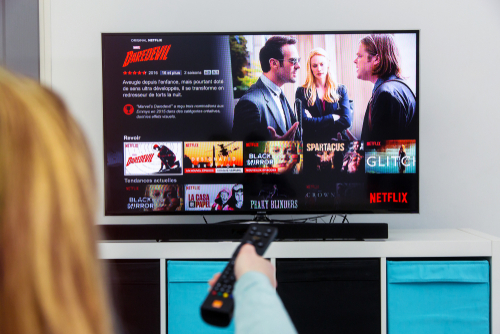Does the New Netflix Show Insatiable condone Fat-Shaming?

Netflix continues to come out with shows that are controversial to say the least. One of their newest shows, Insatiable is based on the premise that has started social media roaring with criticism. The main character, Patty, starts off in the pilot as an overweight high schooler who must deal with the cruelty of bullies surrounding her weight in school. Patty, which also conveniently rhymes with fatty, eventually gets punched in the face and has to get her mouth wired shut for several months making her unable to eat.
During this healing process that takes place during the summertime, Patty goes back to school as a thin hottie in the fall. She uses her newfound beauty to get revenge on those classmates that mistreated her in the past. In the 1:51 trailer that Netflix put out, this show looks like if someone were to lose weight, they would turn into a snarky teenager who cannot get enough of what they want - they become insatiable.
The problem that critics have with the show is that it seems to be promoting that once you are finally a skinny, beautiful woman you can accomplish popularity or get whatever you want. Parents worry that their teens who are old enough to watch the PG-13 rated show will develop low self-esteem, or it will trigger an eating disorder. Using fat suits to make jokes at the expense of those who are overweight or are trying to lose weight can bring negativity into a very serious condition.
On the flipside of the criticism, writer and producer of Insatiable, Lauren Gussis, explained on Twitter that this show was based off her personal high school experiences and wanted to spread the message that the work that takes place on the inside is much more important than what the outsides look like.
When I was 13, I was suicidal. My best friends dumped me, I was bullied, and wanted revenge. I thought if I looked pretty on the outside, I'd feel like I was enough. Instead, I developed an eating disorder...and the kind of rage that makes you want to do dark things. Lauren goes on to say, I'm still not comfortable in my skin...but I'm trying to share my insides - to share my pain and vulnerability through humor. That's just my way.
Bottom line is that parents should monitor what their teens watch as well as their reactions to what they see. Starting an open dialogue with their teenager especially about issues that surround their weight, can be instrumental in raising self-esteem and giving awareness about the dangers eating disorders.
If you or an adolescent you know needs to get help for drug or alcohol abuse, Stonewater Adolescent Recovery Center can give you the guidance that you deserve. Establishing a strong network of family and community can reinforce practices for living substance free.
Call us today to start living in your recovery: 662-598-4214

.jpg)

